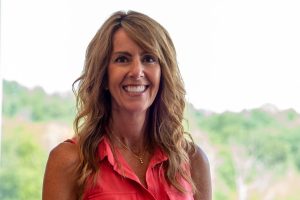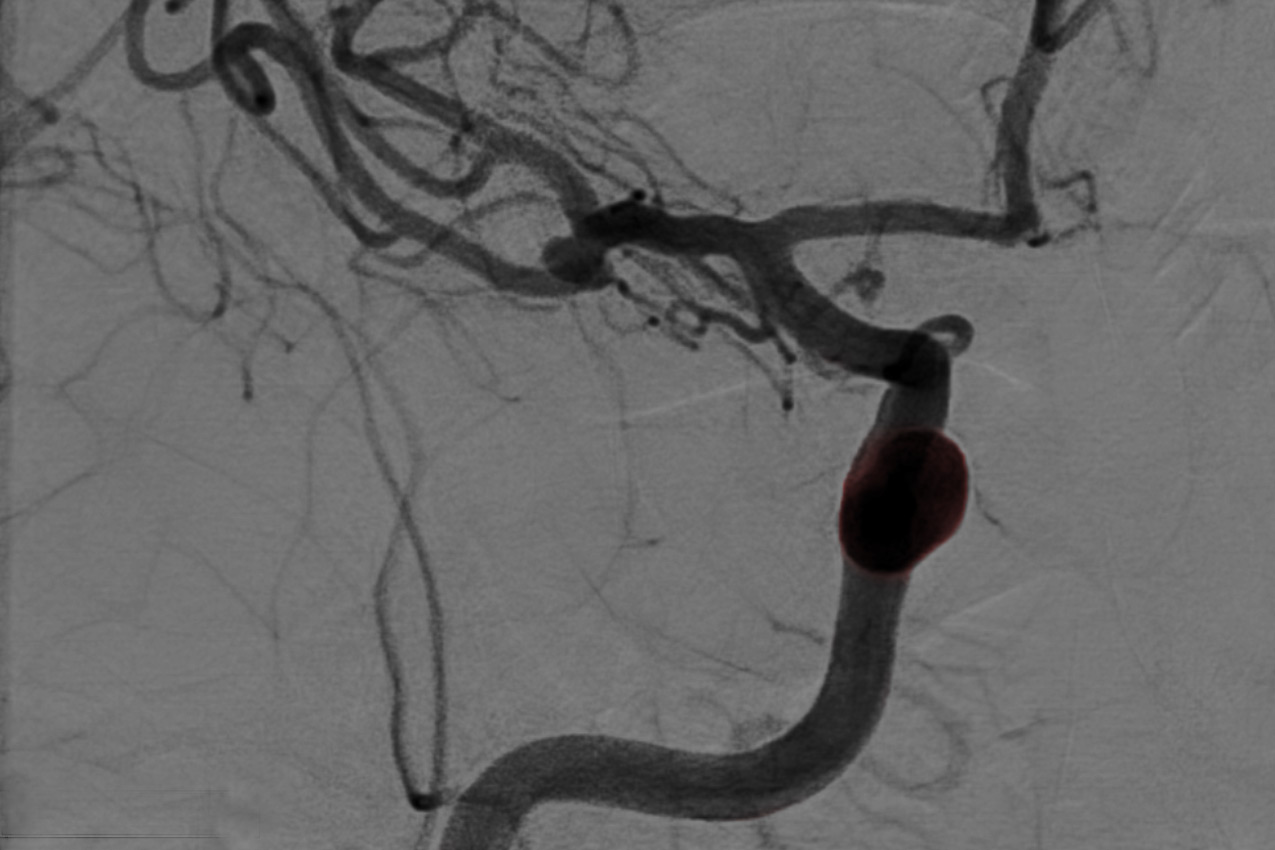September marks Brain Aneurysm Awareness Month.
Brain aneurysms have significantly impacted three generations of the family of Diana Fritzson, 52, of Marlborough, Conn. She sadly lost her grandmother and mother to ruptured brain aneurysms, both women were only in their sixties.
But one year ago Fritzson fought and won her personal battle with a brain aneurysm.
“Thank you UConn for giving me my life back,” says Fritzson who following her mother’s passing in 2004 started receiving annual MRI brain scans to screen for potential brain aneurysms due to her strong family history.
“For years there was nothing, but then one appeared on my scan in 2012,” says Fritzson, then age 44, whose former physician preferred to take a wait and see approach instead of pursuing a surgical intervention.
But Fritzson started developing migraine headaches that worsened overtime, and for years she couldn’t stop worrying about the potential chance her brain aneurysm may rupture at any moment.

Until last year when Fritzson’s paths crossed with Dr. Ketan Bulsara, UConn Health’s chief of neurosurgery.
“I found Dr. Bulsara, and from the moment I met him I knew I was in the right hands to pursue a surgical solution,” says Fritzson who had successful neurosurgery on Aug. 3, 2018 at UConn John Dempsey Hospital.
During her brain surgery Bulsara and his team surgically “clipped” a bulge in Fritzson’s brain blood vessel to eliminate it and strengthen the blood vessel, and at the same time preserving blood flow in the vessel. The surgery was performed with advanced imaging in UConn Health’s state-of-the-art hybrid operating room.
“The entire surgery process was phenomenal and the best part is I don’t have to worry anymore. Dr. Bulsara is awesome and an experienced surgeon with a confident, can do attitude. I had a wonderful experience at UConn and I am extremely grateful for their high level of care,” says Fritzson.
To raise greater public awareness and much needed research funding for brain aneurysms in the state, Fritzson organizes the Brain Aneurysm Foundation Walk of Connecticut each June at West Hartford’s reservoir. This is in collaboration with the National Brain Aneurysm Foundation.
In addition, she started the BAF’s monthly support group at UConn John Dempsey Hospital with Bulsara’s team. Currently, it is the only one of its type in the state of Connecticut.
“Since its beginning Dr. Bulsara and UConn Health have been onboard to help us establish the patient support group,” says Fritzson. “It’s a wonderful way to give back to our community and reach out to so many survivors and caregivers, experiencing similar situations in their lives.”
One in 50 people, or six million nationwide, will develop a brain aneurysm in their lifetime. Most brain aneurysms develop after the age of 40. Interestingly, women are more likely to develop a brain aneurysm, are 1.5 times higher risk of a rupture than men, especially women over the age of 55. African-Americans and Hispanics have double the risk of a brain aneurysm rupture than whites.
“A brain aneurysm is a ballooning of a blood vessel inside the brain that has the potential to leak blood or totally rupture,” says Bulsara. “A ruptured cerebral aneurysm is a neurosurgical emergency and can have devastating permanent consequences for the patient.”
In the U.S. each year 30,000 experience a rupture. In fact, every 18 minutes a brain aneurysm rupture occurs. Globally, there are nearly 500,000 deaths caused by brain aneurysms. If a brain aneurysm ruptures it has a 40% fatality rate and survivors are high risk for permanent neurological damage.
While there are no symptoms of an un-ruptured brain aneurysm, according to Bulsara the warning signs of a ruptured brain aneurysm may include a very sudden onset of an intense headache, severe nausea, and body weakness or numbness.
Fritzson’s strong message to other people: “Don’t ignore these three sudden warning signs and if something just doesn’t feel normal with your body please go to the emergency department. Quick brain imaging in the emergency department can rapidly diagnose a brain aneurysm and get you critical access to lifesaving care.”
She adds: “As I mark the first year of my surgery, my thoughts are of UConn Health and its wonderful staff,” says Fritzson. “My family and I are so grateful to have had such a skilled surgeon perform my surgery and the level of care I received was unmatched to any other experience and speaks volumes of the care they provide to all patients.”
“Diana chose UConn Health for her neurosurgery and there is no doubt that the collaborative, multidisciplinary approach tailoring the care for her specific aneurysm influenced her successful outcome,” says Bulsara.
To learn more about brain aneurysm care at UConn Health and its unique Brain Aneurysm Support Group visit, here.



